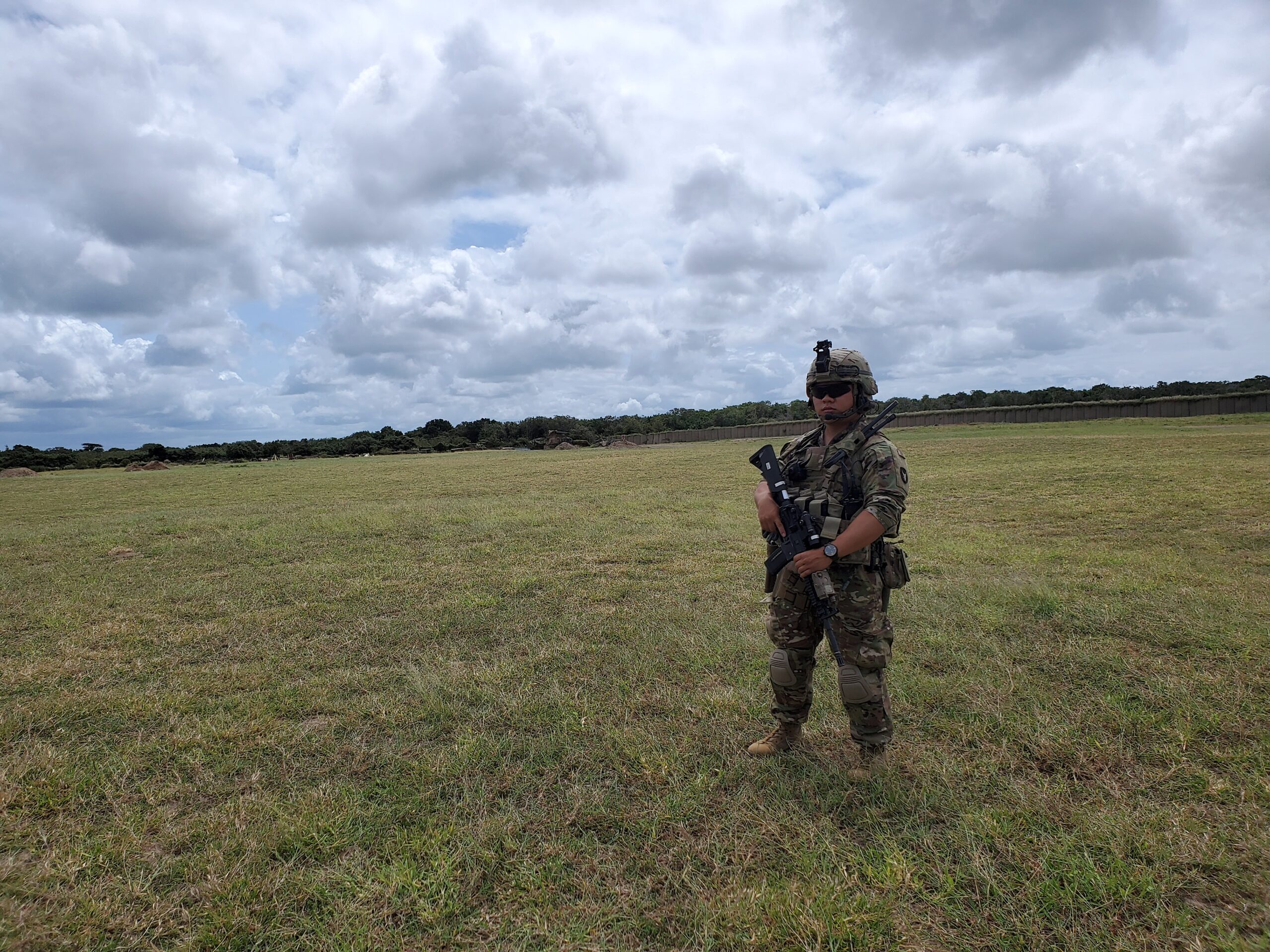When Kong Yang was a high school senior in Maplewood, he began to think about ways to pay for college. Born in Thailand, he came to the Twin Cities with his family as a child and became a naturalized U.S. citizen in 2016. Around that time, his high school hosted career-focused events, and military recruiters were among the guests who caught his eye because, at that age, “I thought it could be kind of fun to play soldier,” Kong says.
Among the schools Kong applied to was Gustavus, which offered him a healthy amount of financial aid. Kong realized that combining this assistance with the college costs the Army covered in exchange for a service commitment would significantly reduce his post-grad debt. Between the Army and college-specific financial aid, Gustavus “is about as expensive as going to a community college,” Kong says, “so here I am.”
That military service commitment, of course, has specific and rigorous requirements. Kong’s six-year contract dictated that he complete the same training as any other soldier. “You have to put in the work,” he says. “So, if you fail your physical tests, don’t show up to drills, or don’t do what’s expected of you as a soldier, then you don’t get the [financial] benefits.” This meant working with his Gustavus professors, who allowed him to miss occasional classes to attend mandated drills, and—in the feverish summer of 2020—to be with his unit as they patrolled the post-George Floyd demonstrations in Minneapolis.
It also meant that Kong had to take a full year off from school in 2020-21 and be deployed to Djibouti in the Horn of Africa. At the time, the region was classified as a combat zone, and Kong was a radio technician in an infantry unit and part of a scouts team, which are often called “the eyes and ears of the Army.” Kong’s platoon was charged with aircraft security, working alongside the Navy and Air Force on C-130 missions to deliver supplies to U.S. troops and allies, most frequently in Somalia. Kong’s role was to be one of the first to deplane after landing, guns drawn, to ensure that his team could safely unload the cargo. Although he never came under direct attack during his tour, his platoon did support a Navy SEAL team and their Somali allies after a terrorist car bombing in 2020. “Those types of terrorist attacks are obviously very sporadic,” Kong says. “You have to keep your intensity up all the time.”
Being on constant alert made returning home to college life unusually challenging. Soldiers thoroughly train for military missions so they’ll be as prepared as possible for whatever dangers might arise, which makes readjusting to “normal” life difficult. “When you’re [deployed in a combat zone], you’re going full speed all the time. Dealing with whether you’re going to live or not becomes part of life,” Kong says. “In some ways, I guess the hardest change is being back here as a full-time student.” Although the military confines soldiers returning from deployment to a military base for a month (to debrief, complete paperwork, and such) Kong says he self-isolated as much as possible for another six months or so once he was back in Minnesota, to allow himself to settle back into non-military life.
Most of his Gustavus friends, including his fiancée (Pa Ying Lor ’21), have now graduated, and Kong is focused on completing his degree in Japanese Studies. He has applied to spend the home stretch before graduation studying Japanese in Kyoto, in a program called Study Abroad at Kansas Gaidai University, part of his long-term goal of becoming an elementary or secondary school language teacher. (His fiancée already teaches in the Twin Cities.) Acceptance into that program will require him to continue fulfilling certain military obligations before leaving for Japan, because Kong has signed a another six-year contract with the Army. “Every Thursday, when I don’t have classes, fall break, Thanksgiving break, even Christmas break, I have blocked those times off,” he says. “If I don’t have classes, I go down [to my unit in Mankato] so I can make up the Army obligations and be able to study abroad.”
Now committed to the military until 2028, Kong’s combined college and military journey has far exceeded the projected “fun” of playing soldier. He knows he’ll enter the workforce with a liberal arts college degree from Gustavus, little or no debt, and 12 years of service to his country—a worldly education only a select few have. “The process doesn’t look clean and is long,” he says. “But if you look at the results at the end, I went to Gustavus, got the private school education, and paid zero.”

Leave a Reply